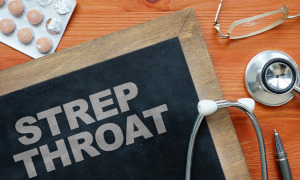Know the Signs and Symptoms of Strep A and Protect your Child
Here is a breakdown of the signs and symptoms of Strep A and when to get medical health:
What is Strep A?
Strep A is a bacterial infection that affects the throat. In some people it can go undetected, in others, if untreated it can cause complications, such as kidney inflammation or rheumatic fever. Rheumatic fever can lead to painful and inflamed joints, a specific type of rash, or heart valve damage. Quick treatment of antibiotics can prevent it spreading.
Who is at risk of Strep A?
Strep throat is most common in children, but it affects people of all ages. If you or your child has signs or symptoms of strep throat, see your doctor for prompt testing and treatment.
Signs and symptoms of strep A bacteria can include:
- Throat pain that usually comes on quickly
- Painful swallowing (children may stop eating or drinking)
- Red and swollen tonsils, sometimes with white patches or streaks of pus
- Tiny red spots on the area at the back of the roof of the mouth (soft or hard palate)
- Swollen, tender lymph nodes in your neck
- Fever
- Headache
- Rash
- Nausea or vomiting, especially in younger children
- Body aches
The cause of these signs and symptoms could be a viral infection or some other illness. Your doctor can swab for strep throat. It's possible for you to be exposed to a person who carries strep but shows no symptoms.
Other illnesses caused by Strep A:
- Tonsils
- Sinuses
- Skin
- Blood
- Middle ear
More serious and rare infections include:
- Scarlet fever, a streptococcal infection characterized by a prominent rash
- Inflammation of the kidney (poststreptococcal glomerulonephritis)
- Rheumatic fever, a serious inflammatory condition that can affect the heart, joints, nervous system and skin
- Inflammation of the kidney (poststreptococcal glomerulonephritis)
- Poststreptococcal reactive arthritis, a condition that causes inflammation of the joints

When to seek medical help:
If you suspect your child has strep throat see a GP as quickly as possible to begin antibiotic treatment. A child who is not eating, drinking or passing urine, floppy and lethargic or drowsy is a cause for concern. Other times to seek medical help are:
- A sore throat accompanied by tender, swollen lymph glands
- A sore throat that lasts longer than 48 hours
- A sore throat accompanied by a rash
- A fever – persistent even when medicated
- Problems breathing or swallowing
- If strep has been diagnosed, a lack of improvement after taking antibiotics for 48 hours
To prevent strep infection spreading:
- Wash your hands. Proper hand-washing is the best way to prevent all kinds of infections.
- Cover your mouth. Teach your children to cover their mouths with an elbow or tissue when they cough or sneeze.
- Don't share personal items. Don't share drinking glasses or eating utensils. Wash dishes in hot, soapy water or in a dishwasher.
